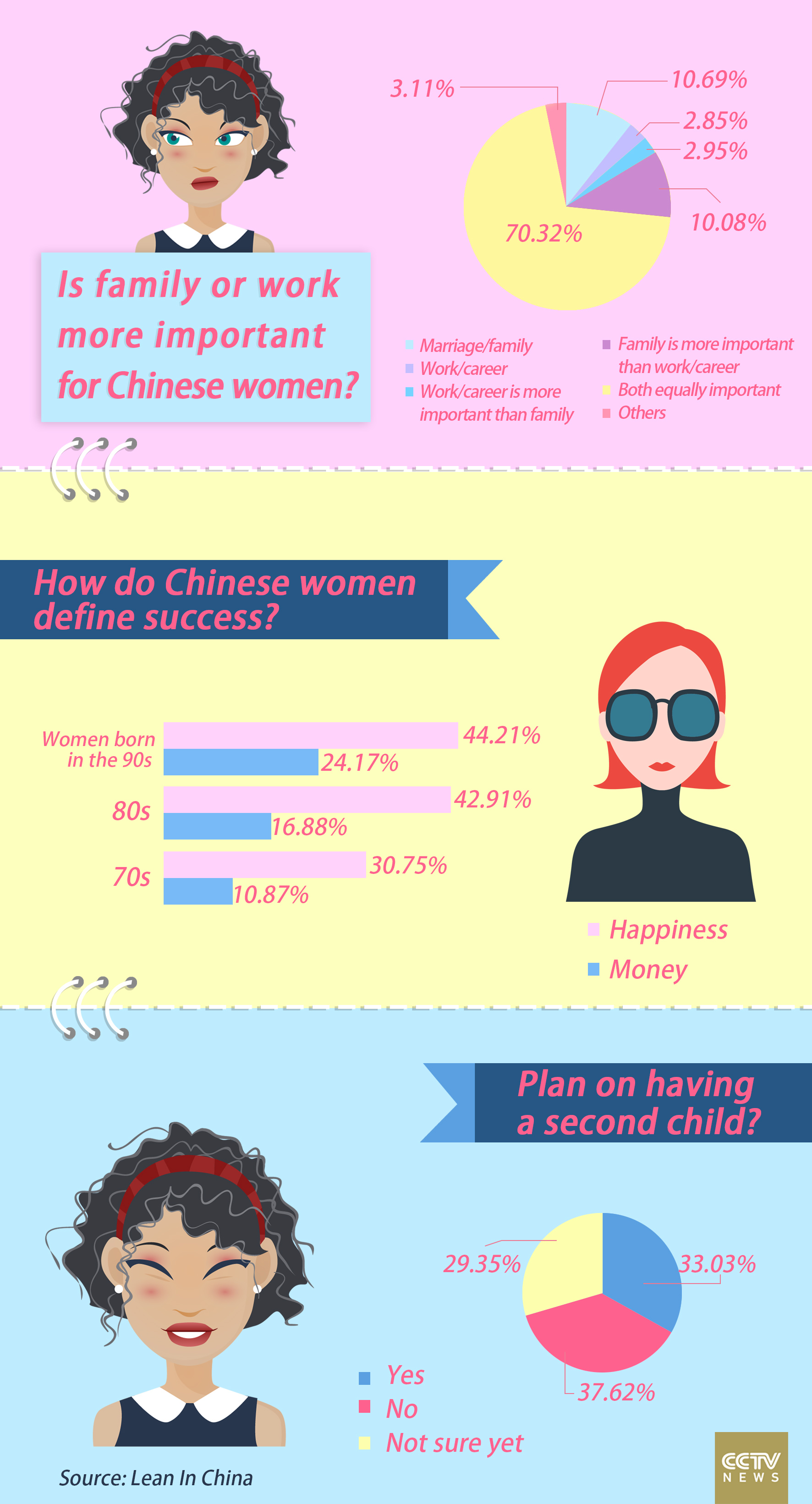
China
16:37, 03-Nov-2016
Are Chinese women happy in the workplace?
Updated
10:21, 28-Jun-2018

In a report conducted by Lean In China, a Chinese community under the umbrella of Sheryl Sandberg’s “Lean In” fellowship of professional women, how happy a woman is at her job intertwines with how successful she is, because Chinese women do not define their success only based on their career performance. Life at home also matters.
The report found that Chinese women think health, family, and happiness are the three factors used to measure success. They hope to be ahead of the game at both work and home. When asked about the biggest challenges in the workplace, they think a balance between work and home is needed, which far outweighs the challenges usually seen in the workplace in other parts of the world, such as sexism, a lack of opportunities for promotion, or a lack of confidence.

The 2,000 Chinese women being surveyed encompassed women of all ages, marital statuses, workplaces, and salaries.
The report further stated that gratuitous family work is added onto a woman, especially after marriage and having children. Supporting their other half’s career is also challenging for Chinese women. For them, a step forward in the workplace means more support from their spouse in terms of doing more housework or taking a larger role in taking care of their children.

However, the reality is 60 percent of married women said they are taking on more responsibility to take care of their children. Comparing to women born in the 70’s, more 90’s-born women think the husband and the wife should shoulder equal responsibilities when raising their children, which indicates how Chinese women believe they should play equal roles to men.
Also, Chinese women who are older, such as those born in the 70’s, don’t believe money is as much of a contributing factor to success as being happy.
While Chinese society emphasizes getting married at a young age, favorably in your 20’s, nowadays, only 19 percent of Chinese women think people shouldn’t get married after the age of 30, contrary to what society traditionally encourages.

Additionally, after China opened up its second child policy, only about 30 percent of Chinese women are planning to have a second child, with the financial burden being the biggest obstruction preventing women from having their second child, and think a balance of work and happiness is even harder after their second child.
The report concluded that to encourage women to take more roles in leadership in the workplace, they need more support at home, such as men taking the same responsibilities at home, and letting society understand how women face balance issues between work and a happy life at home.

SITEMAP
Copyright © 2018 CGTN. Beijing ICP prepared NO.16065310-3
Copyright © 2018 CGTN. Beijing ICP prepared NO.16065310-3